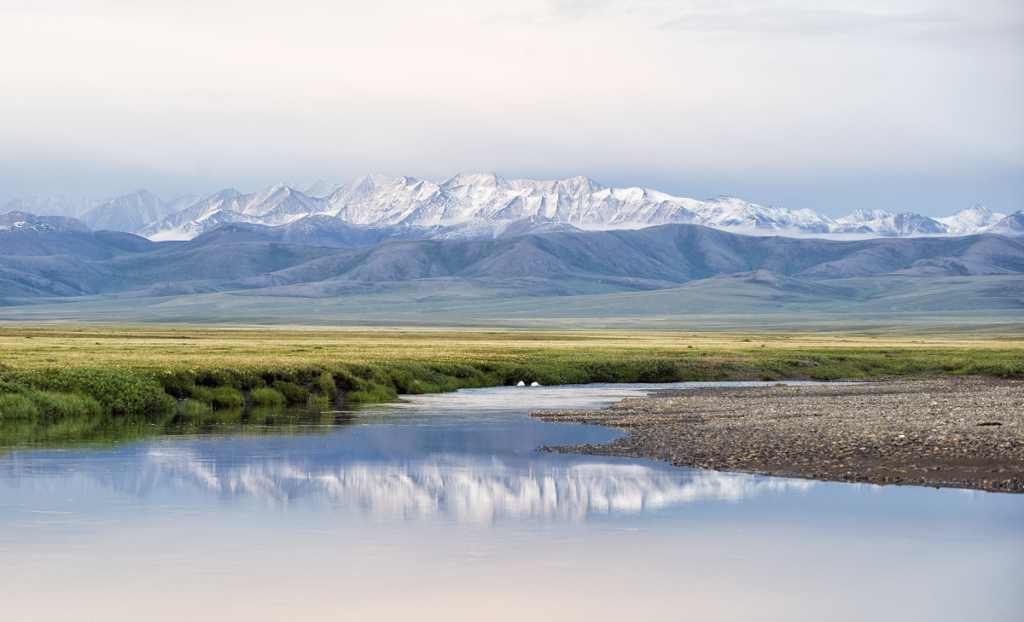Trump hates the National Environmental Policy Act

[This piece originally appeared in The Hill. Cover photo: Arctic National Wildlife Refuge (Peter Mather/www.PeterMather.com)] As Alaskans, we care about our environment, because we know the lands and waters provide us with places to harvest food, to fish, or simply camp and recreate.
Whether it’s our national forests in Southeast and Southcentral Alaska, or Bureau of Land Management areas that stretch from the Arctic to the interior, these public lands define our state. They provide us with endless opportunities, and we can live daily what amounts to a “bucket list” trip for many in the lower 48 U.S. states.
We can keep it that way — for us and for future generations — if we use our Alaskan expertise to inform decisions that could impact our lands and waters. Unfortunately, the Trump administration is pulling us back from having a say in these decisions and threatening our ability to protect what we love about Alaska.
The Trump administration has now finalized major proposed changes to the National Environmental Policy Act (NEPA), rewriting the rules that govern how agencies review development projects under that landmark environmental law. NEPA is our country’s national charter for the environment, and it meets its purpose elegantly by requiring information-based decisions over political mandates. It forces federal decision-makers to consider, before they make their decisions, what the impact of their actions will be on the environment, on wildlife and on local communities. It also mandates that they seek the input of the people that will be most impacted before they decide.
Alaskans want their voices to be heard on, for example, the proposed massive Pebble Mine that could destroy a world class fishery. Equally important is having say on projects that could affect the Kenai River, a place that hasn’t made national headlines often but that matters greatly to tens of thousands of Alaskans. That’s why we want the opportunities that NEPA provides to us — allowing the people whose livelihood is centered on Alaska salmon, the people who live in a particular area and the people who would be impacted by development, the chance to lend their expertise and perspective to the federal government.
Sure, the federal officials might not ultimately listen, but that’s not an argument to gut NEPA — it’s actually a reason, if anything, to strengthen it.
NEPA has proven to be valuable and durable during the 50 years that have elapsed since President Nixon signed it into law, yet the current administration has proposed changing NEPA regulations in a way that will undercut NEPA’s critical role in checking the potential for abuse of power by officials, or stopping undue influence by out-of-state or international corporations seeking access to resources on federal lands for private gain.
Additionally, the proposed changes would limit consideration of “cumulative impacts” of development. Lower-48 salmon habitat has been greatly impacted overall, but was it lost in one fell swoop thanks to a single development decision? No, salmon in the Pacific Northwest, for example, have struggled against death-by-a-thousand-cuts. Individually, projects didn’t look like much, but collectively they placed many salmon populations in peril. NEPA is our check agains that potential consequence here in Alaska — a check that is at risk of being lost.
Should the changing climate should be considered in federal decisions? Should changes in wildlife habitat or migration patterns be a cause for concern? How about increased coastal erosion? Or melting permafrost in America’s Arctic?
The Trump administration rollback would allow the federal officials to intentionally ignore climate change — and its impacts — in their decisions.
NEPA is an important tool to make development projects safer for the environment, which is good for everyone in the long run, including developers. There are good examples here. A gold mine was proposed in Nome, Alaska, and concerned citizens looked at the Rock Creek proposal and asked the federal government for a robust NEPA review to disclose how the proposal could impact the environment. It refused and only did a cursory review, similar to what would become standard under Trump’s rollbacks. Fast forward two years and the mine’s water management plan failed miserably, resulting in more than $800,000 in fines and the mine’s closure. Had the feds done as the citizens asked, their review could have caught the water management issues that led to polluted waters and the mine’s demise.
It’s for these reasons that Trump’s decimation of NEPA should be concerning to public lands advocates and outdoors lovers across the country. If anything, we should be strengthening opportunities for the voices of Americans to be heard, for science to guide decision-making, and for climate change to be acted upon, so that our local knowledge can help our country protect our public lands, waters and climate in the years ahead.
